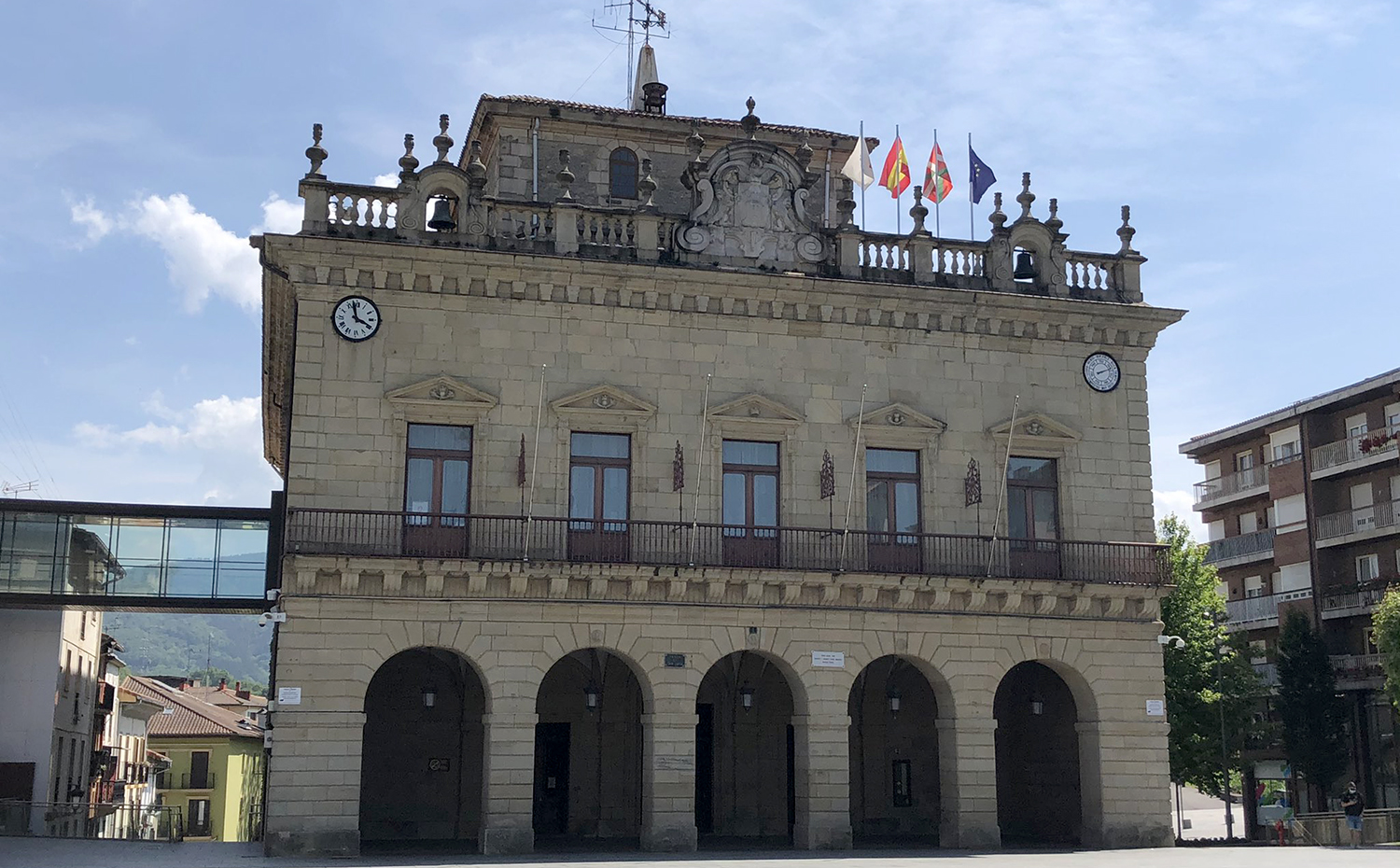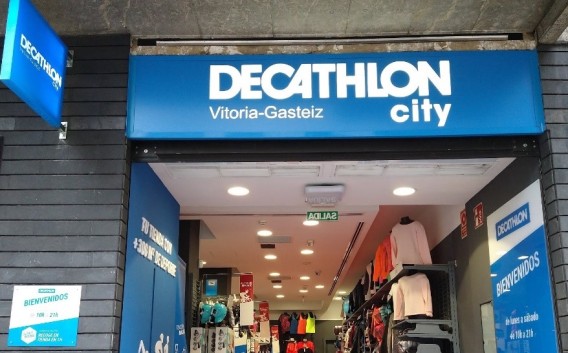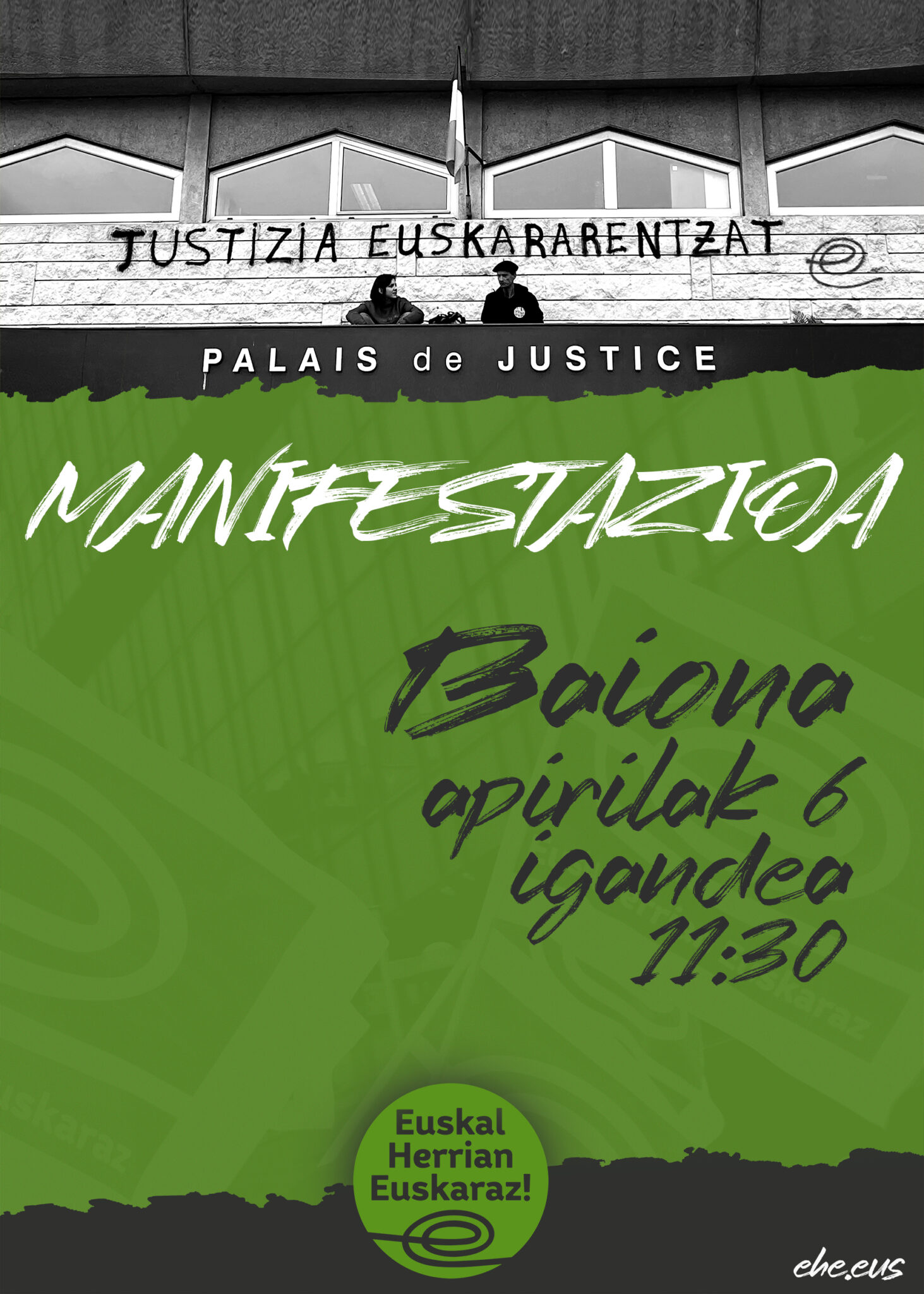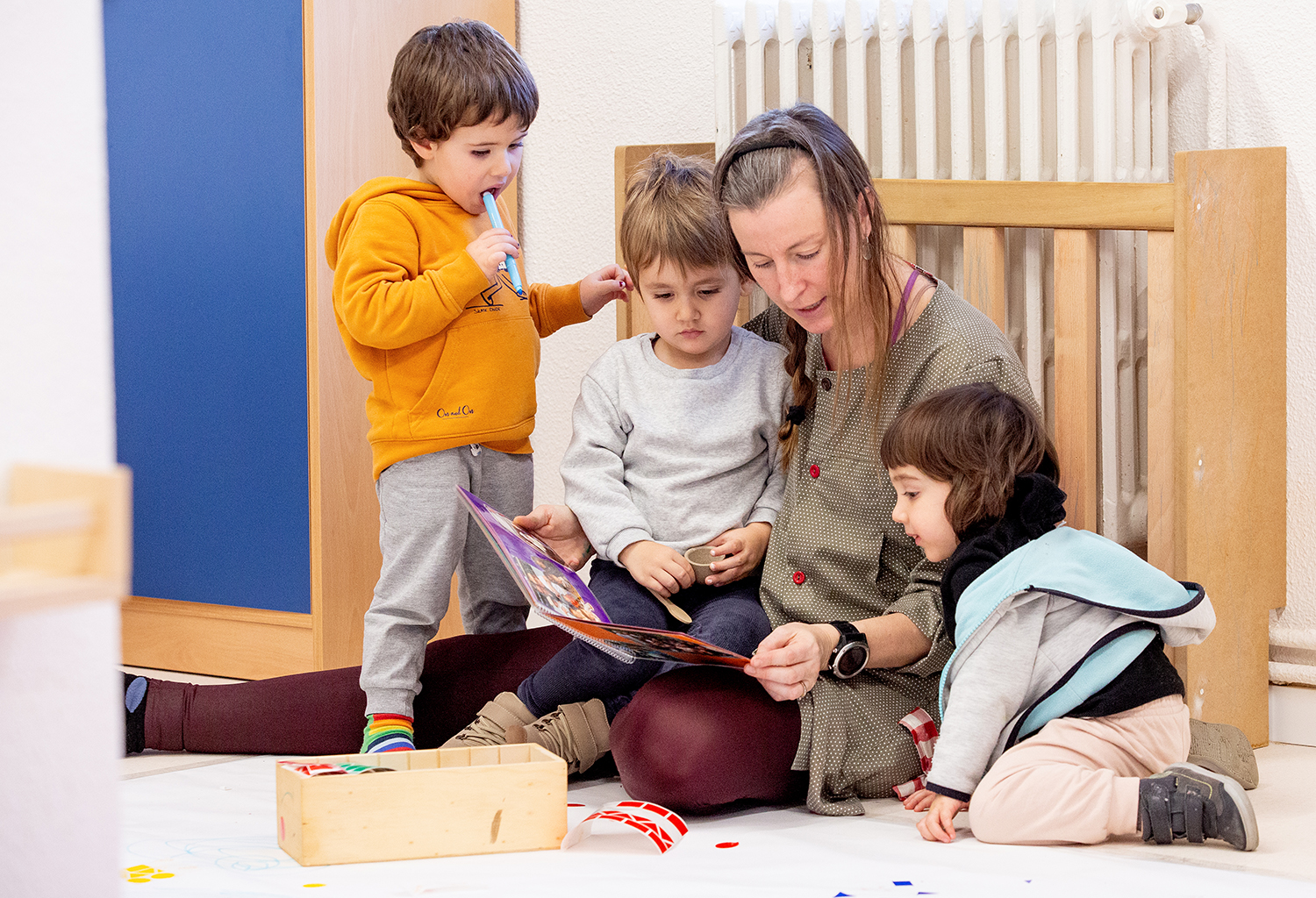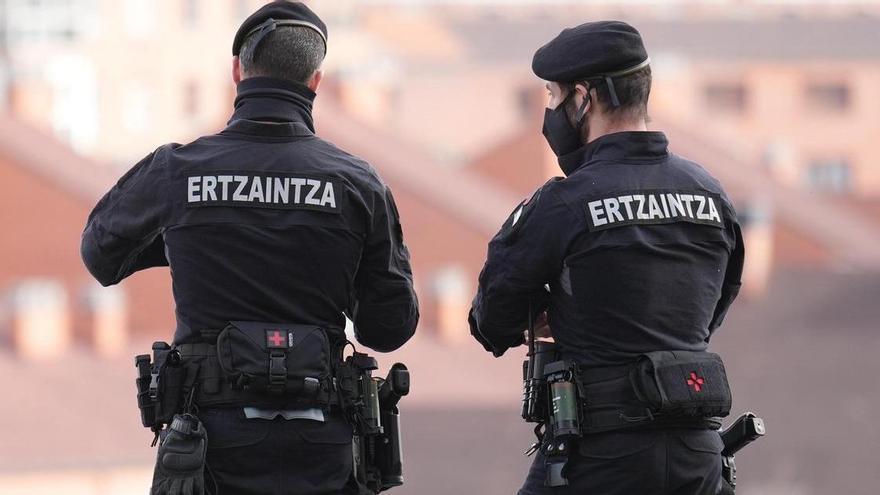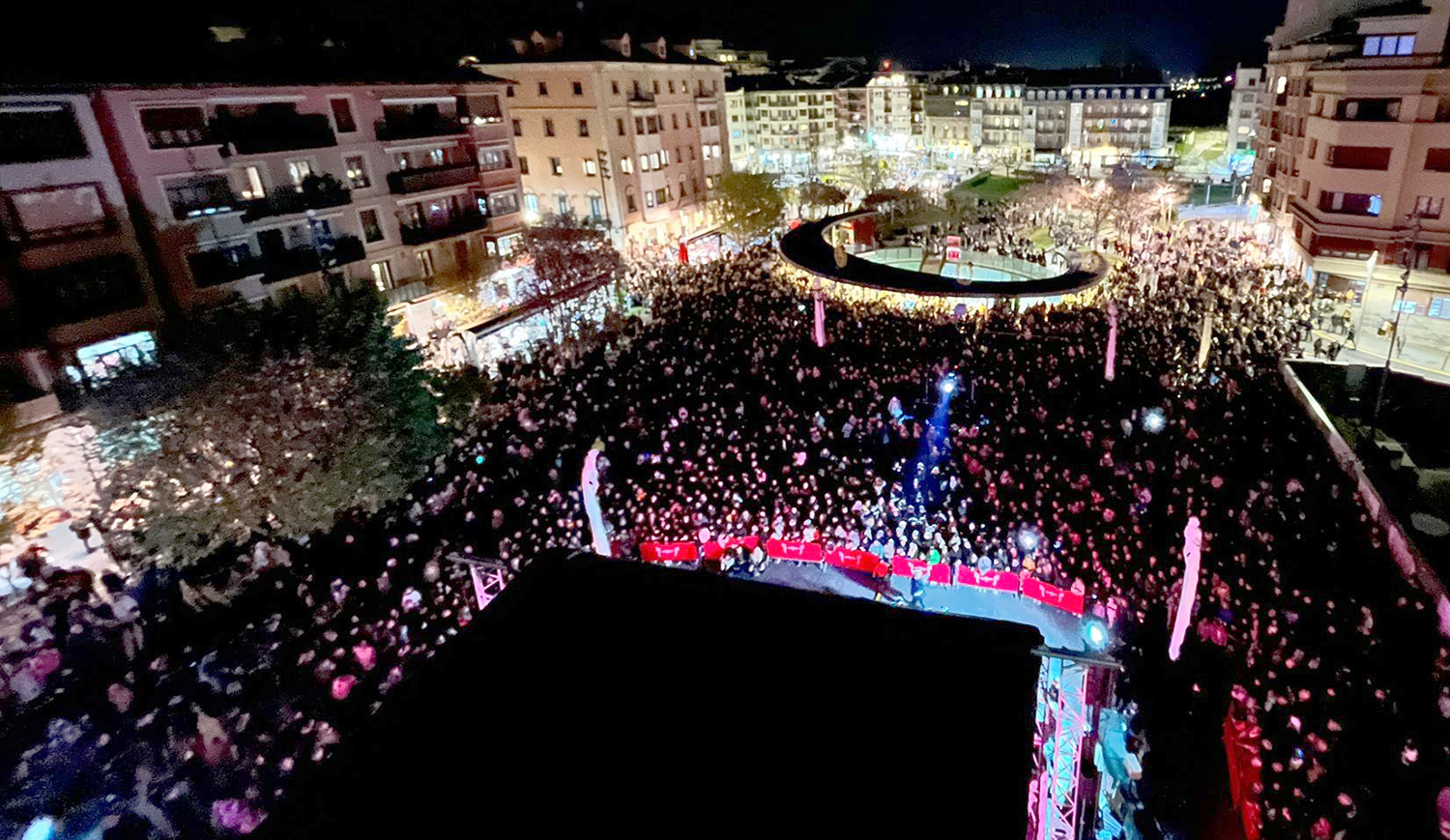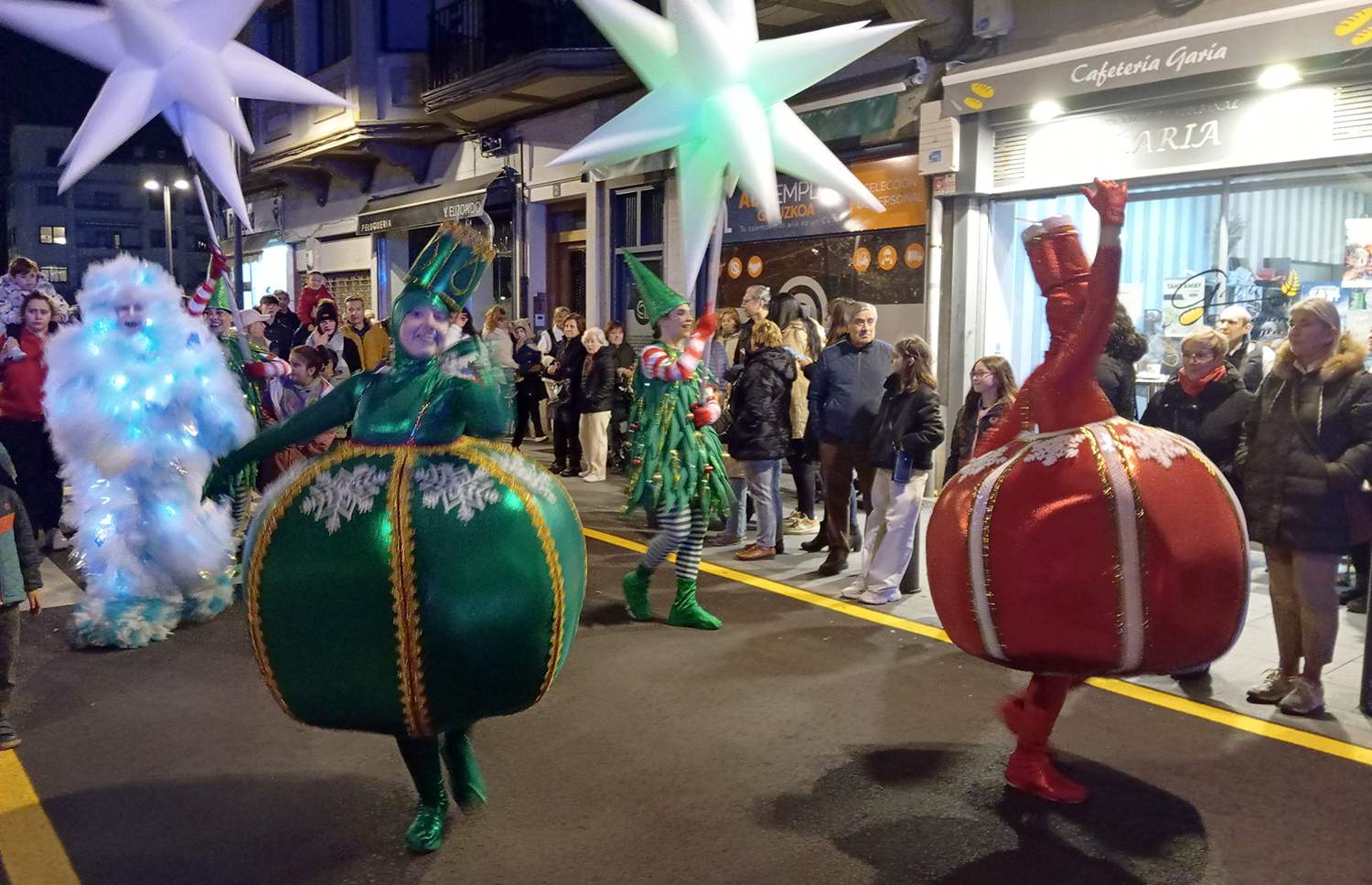"Not everyone has the capacity or resources to deal with a linguistic conflict"
- Nerea Redondo and her sister intended to try the triathlon. Thus, they approached the 10th edition of the Feria de San Sebastián on June 23. Female triathlon. They were stunned by the judge's words. For my cojones you are going to speak in Spanish.” That is, between the two sisters he prohibited them from speaking in Basque. The sisters then denounced the violation of linguistic rights that extended beyond this phrase. We have now calmly talked to Nerea Redondo about that event, about the experience of the neighborhood of Egia, which was the germ of Euskaraldia, and about Euskaraldia.
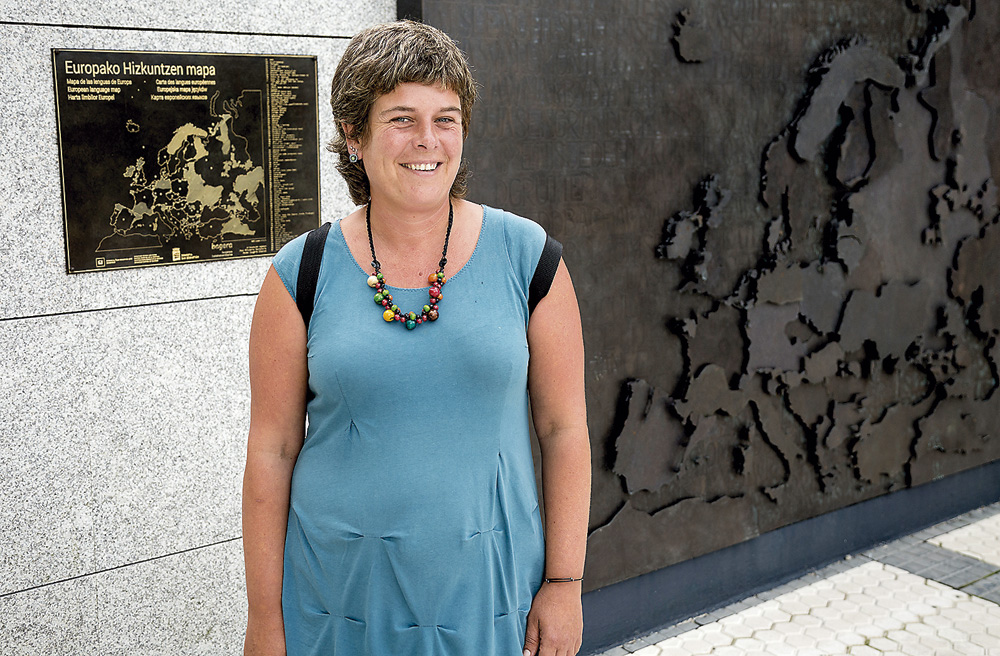
The complaint sent to the institutions and the City Hall of San Sebastian was disseminated in a whatsapp and on social networks. There, the conflict between the sisters and the juez.De the reading of the story revealed that the sisters had experience in the management of this type of linguistic situations, which had a given speech and attitude. Nerea Redondo confirmed our opinion when we spoke in June: “We live like this. Two years ago we participated in Egia Euskaraz Nahi Dugu. We did a TELP course and gave us tools to learn how to live in Euskera.”
After three months, what body has remained?
Bittersweet. That in Donostia, in 2018, there is such a thing, that is to say, forbidding to speak in Basque among us is very hard. The organizing team, ATLÉTICO San Sebastián, acknowledged what happened and said that this could not happen again. On the contrary, the team of judges of the Guipuzkoan Federation of Triathlon was not aware of the intention to accept what had happened and to take action with regard to that judge. On the other hand, we did what we had to do, we denounced it and had great support.
Were you clear that you would denounce it?
When we finished the triathlon and realized that I was disqualified [for lack of respect on the part of the judge who took the red card] I told my sister, “Itziar, do you remember how a few months ago, in a football game, the referee happened something like this?” In the same Concha I said: “This has to come out at ETB.” I wanted to say that I had to make myself public and have an opening.
We made the complaint in Elebide, in the Observatory and in the Basque Department of the City of Donostia. The Centre, aware of its gravity, made it public. We talked to the association of the Basque Country Bagera of Donostia and they told us what fields we had to report. Because it's nothing easy.
What's not easy?
To start with, when you receive a response of this kind, it is easier or more usual to go to Spanish. Another option is to face, discuss. You decide to denounce it, you have to write a complaint, you have to know where to go, you have to be prepared to receive media, in our case to meet with the Federation and Atlético... Not everyone has the capacity to do it, has no resources, may not have time or will.
And you need protection. We knew where to go. We then had the support of Bagera, the world of Euskera, and also the world of sport.
Is this the first time that you have had such a conflict?
Someone may ask him to do so in Spanish or to tell him that at that time there is no possibility of doing so in Basque, but such a ban is the first time, yes! If you had that attitude with us, you had the same attitude with over 300 athletes that we were there.
They are not used to the Basques coming face-to-face, so what we have done is a lack of respect.
They kept the Basque and you had a very busy attitude.
We live like this. Before two years I am convinced that I would go to Castilian, not in the conversation between the sisters, but with the judge. Now yes, but then I wouldn't have had the lamp turned on.
You refer to the Egian Euskaraz bizi Nahi Dugu initiative you did in 2016 in the Egia district of Donostia. In turn, they committed to living a week in Euskera.
To prepare this week we take the TELP course offered by Emun. It was a terrible change for me. I changed my mind and gave me the tools. We made the first thought: living in Basque means tiredness, anger, difficulty, double work... So what's the easiest thing? I come to Spanish. In the second reflection we talk about prejudices, how I decide who knows Euskera and who doesn't; by the color of the skin, by clothing, by age ... Then they gave us tools to keep the Basque in the street. Tranquillity for example: “Quiet, don’t you know? I'll help you. You don't know how to speak, but do you understand it?" We also learned to manage anger, and the biggest discovery was to approach people smiling, one calmed down and the other too.
What you've learned during the course has taken you to the street in these two years.
We started the course all we did. The first thing I said to myself was: “You’ll see what salsa you’re going to enter from now on!” Well, I didn't have any bad experience. He was wearing the "Ahobizi" veneer on his chest and explaining what we were doing. I explained to them that it was not my right, but my wish, and people understood it. I don't, now I remember having a bad experience. I explained everything to you, and he told me he wasn't interested in it.
But, in general, people are very grateful to share their experience with him, giving him the opportunity to approach the Basque. The employee of the previous store [We are in Tabakalera] is from Ecuador. I started speaking in Basque and he would say to me in Spanish: “I don’t know anything!” I asked him: “I will help you.” Today, she goes to the Barrio program for immigrants, she knows the numbers, and she uses greetings and greetings to greet people. He realizes there's a language, the one here, and it offers opportunities. We have that problem, people have Euskera as an obstacle, not as an option.
The Basque Country arrives. You had very bad experience in that Donostia triathlon. What would you say to those who intend to participate?
If it were 23 June today, I would do the same. What we are going to do in Euskal Herria in November and December is an incredible challenge. Two years ago, when we finished the experience of Egia, we said: “If this was done in all the towns of Euskal Herria?” It was a dream. When I knew that Euskaraldia was going to take place, I got goosebumps. I think it's a big step in our linguistic ownership. We said eleven days, but at the twelfth do not forget it, the light bulb stays on. I am sure that this experience will have a solid foundation in the development of language. Because the official language, the work done by the institutions, the texts in both languages… Yes, but to live in Basque… no. It's a click. One click, but with the tools in your hand. In other words, before Euskaraldia, courses such as TELP will be held that we did in Egia. What is easy to say, “for a week we are going to live in Basque”, but that is done? We need tools.
Until 23 November we will have a great job of telling people what Euskaraldia is, encouraging people and bringing us closer. Always presenting Euskera as an option. It seems to me more appropriate to speak of own law than of the possibility that we all have of using Euskera.
The roles of “Ahobizi” and “Belarriprest” are a great invention. You just don't tell him: “Speak in Basque!” It is a concrete proposal and you are also given tools for that game.
Don't make a fuss, don't confront, don't victimize... and obey. As oppressed subjects, in this case as Basques, we talk, how many times have we had to listen to them? Ironically, two years ago, at the Euskalale Independentiston Meeting, Esne Arzallus said: "We have arrived here,... [+]
Euskal Herrian Euskarazek manifestazioa deitu du apirilaren 6rako, 11n EHEko bi kide epaituko dituztelako. Hiriburuetatik autobusak antolatzen ari dira. Bi helburu bete nahi dituzte, batetik, epaituak izango diren bi kideei babesa erakustea, eta bestetik, euskararentzat justizia... [+]
ELA sindikatuak azaldu duenez, azken Lan Eskaintza Publikoaren oinarrien arabera, Ertzaintzarako eskainitako lanpostuen %20ak eta Udaltzaingoaren %30ak ez daukate euskara-eskakizunik. Gasteizen, adibidez, udaltzain-lanpostuen erdietan, 24tan, ez dago euskara-eskakizunik.
Ba al dakizue frantses batzuk harritu egiten direla mugaren alde honetan ere euskaldunak bagaudela jakitean? Ba bai, harrigarria bada ere, behin, Donostian, frantses batzuei entzun nien sinetsi ezinik beren buruari galdetzen: “Saint-Sébastien est au Pays... [+]
"No entiendo, en castellano por favor" eta gisakoak ohikoak dira eskolako guraso Whatsapp taldeetan, baina Irungo Txingudi ikastola publikoan euskara hutsean aritzeko modu erraz eta eraginkorra dute, behar duenarentzat itzulpen sistema berehalakoa ahalbidetuta.
Gabonetako argiak pizteko ekitaldia espainolez egin izanak, Irungo euskaldunak haserretzeaz harago, Aski Da! mugimendua abiatu zuen: herriko 40 elkarteren indarrak batuta, Irungo udal gobernuarekin bildu dira orain, alkatea eta Euskara zinegotzia tarteko, herriko eragileak... [+]














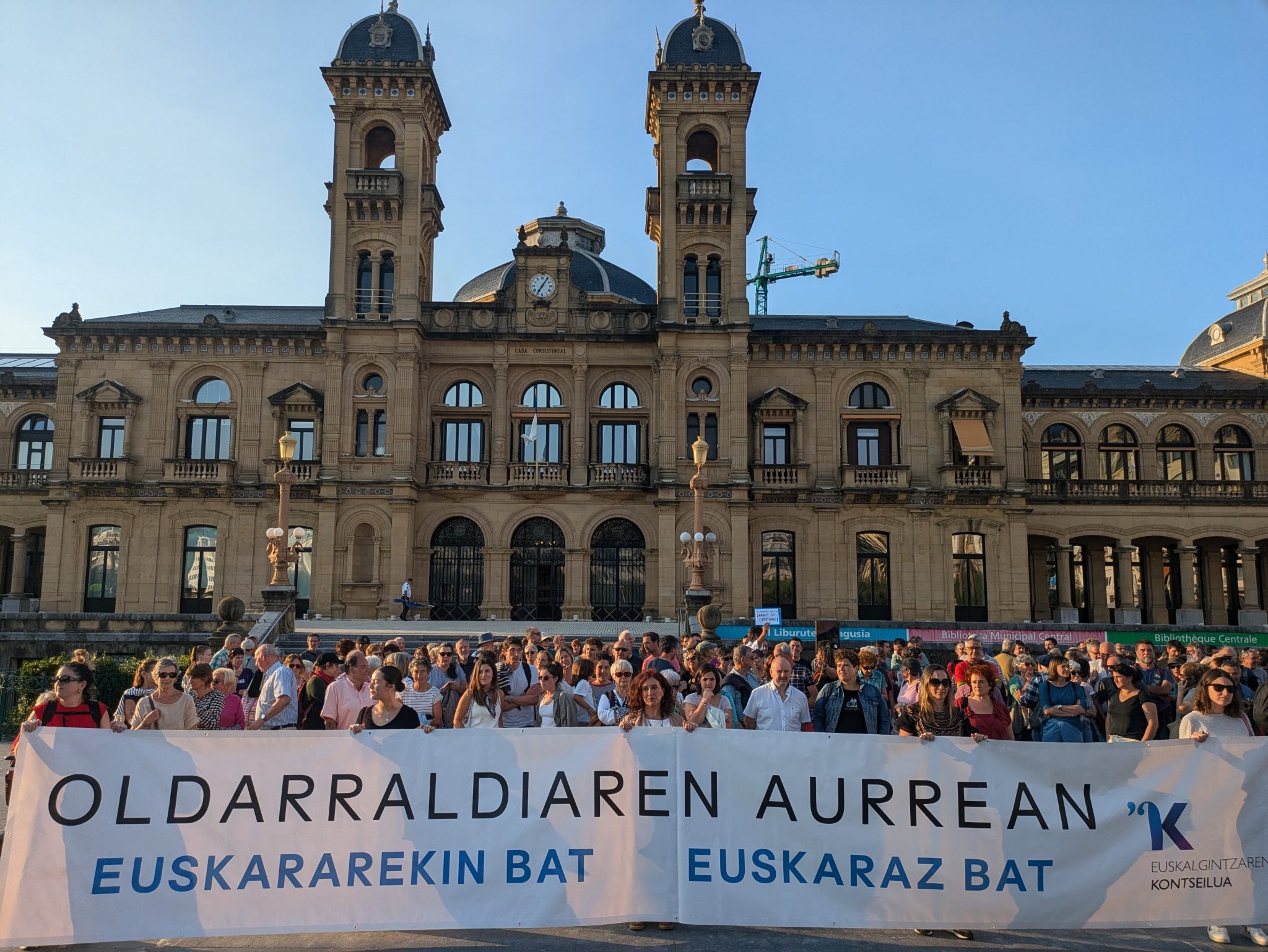

.jpg)
